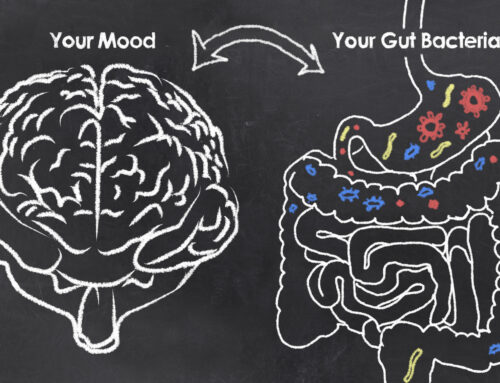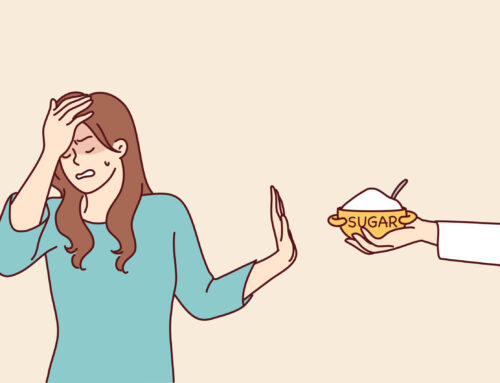Artificial dyes are omnipresent in the modern food industry, adding vibrant colors to various processed foods and beverages. While these colorful additives may enhance the visual appeal of our favorite snacks, they also harbor hidden dangers, particularly for mental health. In this blog post, we’ll explore how these additives can worsen symptoms of depression and anxiety.
The Pervasive Presence of Food Dyes:
Artificial food dyes are commonly used to enhance the color of processed foods and beverages, from candies and snacks to sodas and cereals. These dyes are synthesized from petroleum-based chemicals and are added to foods to make them more visually appealing and attractive to consumers. Despite their widespread use, these dyes are not without controversy, as research suggests they may have adverse effects on both physical and mental health.
Commonly Used Food Dyes:
Some of the most prevalent food dyes include:
- Red No. 40: This is the most widely used artificial food dye. It is often found in products like candies, beverages, and cereals.
- Yellow No. 5: Commonly known as tartrazine, this food dye is used in products such as snacks, soft drinks, and sauces.
- Yellow No. 6: It is commonly used in baked goods, snacks, and ice cream products.
- Red No. 3: This artificial dye is used in candies and baked goods.
Potential Mental Health Risks:
While the safety of food dyes has long been debated, mounting evidence suggests that these additives may have adverse effects on mental health. Studies have linked artificial food dyes to hyperactivity, attention-deficit/hyperactivity disorder (ADHD), and other behavioral issues in children and adults. These dyes may also exacerbate symptoms of anxiety and depression in susceptible individuals because they contain chemical compounds known to disrupt neurotransmitter function in the brain, affecting mood regulation and emotional well-being.
Neurotransmitter Disruption:
Artificial food dyes have been shown to interfere with the balance of neurotransmitters in the brain, including serotonin and dopamine. Serotonin is a neurotransmitter associated with mood regulation, and disruptions in its levels have been implicated in depression and anxiety disorders. Similarly, dopamine plays a crucial role in reward and pleasure pathways, and alterations in dopamine levels can contribute to mood disturbances.
Inflammation and Oxidative Stress:
Some studies suggest that artificial food dyes may trigger inflammation and oxidative stress in the body, further exacerbating symptoms of depression and anxiety. Chronic inflammation and oxidative stress have been linked to the development and progression of various mental health disorders, including ADHD, Hyperactivity Disorder, mood disorders, and anxiety disorders.
Susceptibility in Vulnerable Populations:
Specific individuals may be more susceptible to the effects of artificial food dyes on mental health, particularly children and adolescents. Research has shown that children with ADHD, depression, and anxiety may experience worsened symptoms when exposed to artificial food dyes, including increased hyperactivity and impulsivity. Studies indicate that eliminating these additives from their diets can improve symptoms.
Regulatory Oversight and Labeling Issues:
Despite growing concerns about the safety of artificial food dyes, regulatory oversight in many countries remains limited. Food manufacturers may sometimes use multiple dyes in a single product, making it difficult for consumers to identify and avoid them. Improved labeling and transparency regarding food dyes are needed to empower consumers to make informed diet choices.
Making Informed Choices:
Consumers can proactively reduce their exposure to mitigate the potential risks associated with artificial food dyes and support mental well-being. One strategy to minimize intake is to choose whole, minimally processed foods and beverages free from artificial additives. Click here to learn more about how diet can significantly impact your mental health.
Seeking Support:
Individuals experiencing symptoms of depression and anxiety should seek support from qualified mental health professionals along with integrative doctors. Therapy and lifestyle interventions can all play a role in managing and alleviating symptoms. Adopting a balanced and nutritious diet can also support overall mental health and well-being.
While artificial food dyes may enhance the visual appeal of processed foods, their potential risks to mental health cannot be ignored. By raising awareness of the hidden dangers of food dyes and advocating for greater transparency in labeling and regulation, we can empower individuals to make healthier choices for themselves and their families. Choosing natural, whole foods that are not processed is beneficial for physical health and essential for supporting mental well-being in the long run.
To learn more, visit these links:
https://ncpc.ucmerced.edu/news/2021/public-health-professor-shows-food-dye-linked-neurological-childhood-development
https://www.ewg.org/news-insights/news/2021/04/california-agency-acknowledges-synthetic-food-dyes-link-hyperactivity
https://pedersonsfarms.com/blogs/blog/how-synthetic-food-dyes-affect-children-examining-the-impact







Leave A Comment